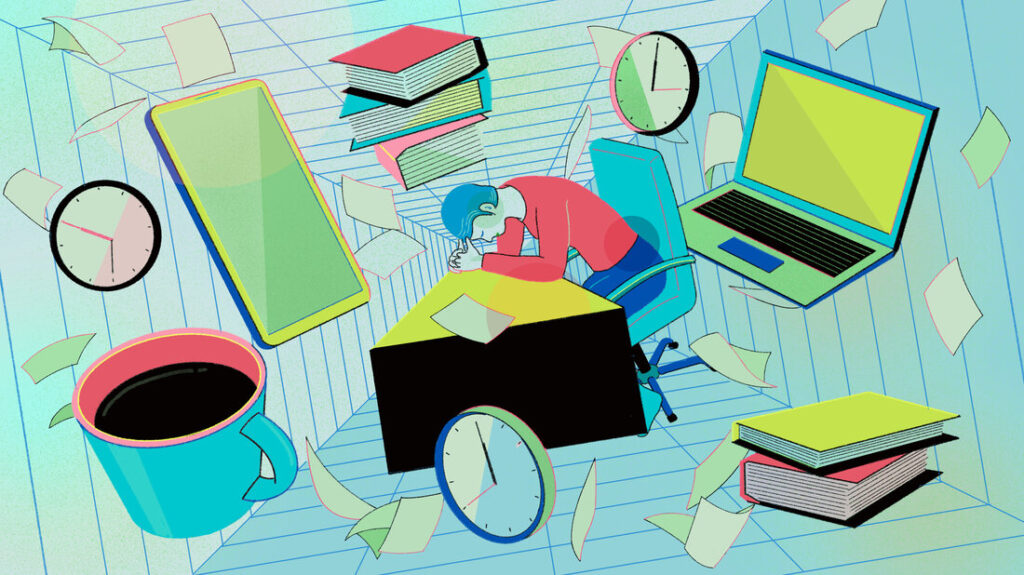
Laziness, while often dismissed as a harmless habit, can slowly lead to an unhealthy lifestyle. It diminishes physical health, mental well-being, and personal growth. This article explores how laziness traps you in destructive cycles and provides practical steps to regain control over your life for a healthier, happier future.
The Physical Consequences of Laziness
- Sedentary Lifestyle: Sitting or lying down too much might feel comfortable, but it weakens your body. A lack of regular physical activity leads to weight gain, cardiovascular issues, and even chronic illnesses like diabetes.
- Weakened Immune System: Laziness often correlates with poor dietary habits and irregular sleep patterns. Your body becomes less equipped to fight off illnesses.
- Loss of Strength and Stamina: The less you move, the harder movement becomes. Over time, even simple activities like climbing stairs or carrying groceries can feel like monumental tasks.

Mental and Emotional Impacts
- Procrastination and Anxiety: When you keep delaying tasks, they pile up, creating stress and overwhelming anxiety. The more you avoid responsibilities, the more they haunt you.
- Low Self-Esteem: Laziness feeds a vicious cycle. Not accomplishing goals makes you feel incapable, which further demotivates you from trying.
- Isolation: Laziness often leads to withdrawing from social activities. Humans are social beings, and isolation can lead to loneliness and depression.
- Breaking the Trap of Laziness
- Now, listen carefully, my dear, because this is where you can take charge of your life. Breaking free from laziness isn’t about sudden, dramatic changes; it’s about steady, intentional actions.
- Set Small, Achievable Goals: Start by creating a list of small tasks. Accomplishing these will give you a sense of purpose and momentum.
- Follow a Routine: Structure your day with a balanced schedule for work, rest, exercise, and leisure. Routine instills discipline.
- Prioritize Physical Activity: Begin with simple activities like a 10-minute walk. Gradually increase the intensity. Physical activity boosts your energy and releases endorphins, which improve your mood.
- Fuel Your Body Right: A nutritious diet provides the energy you need to stay active. Avoid excessive junk food and opt for balanced meals rich in vegetables, fruits, protein, and whole grains.
- Get Quality Sleep: Aim for 7-8 hours of restful sleep every night. A well-rested body and mind are less likely to succumb to laziness.
- Avoid Temptations: Limit distractions like excessive screen time. Allocate specific periods for entertainment and stick to them.
- Find an Accountability Partner: Share your goals with someone you trust. Their encouragement and check-ins can keep you on track.
- Developing a Growth Mindset
- Child, remember that life is about growth. A growth mindset encourages you to view challenges as opportunities rather than obstacles. Here are some ways to foster this mindset:
- Learn from Failures: If you falter, don’t be too hard on yourself. Reflect, adapt, and try again.
- Celebrate Progress: No step is too small to celebrate. Each achievement brings you closer to your bigger goals.
- Stay Curious: Learn new skills or hobbies. Curiosity keeps your mind active and prevents boredom, which often fuels laziness.
- The Role of Community and Purpose
- Join a Group: Participate in community activities, fitness clubs, or study groups. Being around motivated individuals can inspire you.
- Find Your Purpose: Think about what drives you. Purpose adds meaning to your actions, making it harder for laziness to creep in.
- Practice Gratitude: Every morning, remind yourself of three things you’re grateful for. Gratitude fosters positivity and motivates action.
- Q&A Section
- Ques 1: Why do I feel more tired when I’m lazy?
- Ans: When you’re inactive, your body gets used to the lower energy demand. Over time, your stamina decreases, making even small tasks feel exhausting. Regular activity keeps your energy levels up.
- Ques 2: Can laziness be a sign of something deeper?
- Ans: Yes, sometimes laziness masks underlying issues like depression, anxiety, or low self-esteem. It’s essential to reflect on your feelings and seek help if needed.
- Ques 3: How do I stay consistent with breaking laziness?
- Ans: Consistency comes from routine and discipline. Start small, track your progress, and reward yourself for achievements. Surround yourself with positive influences and focus on your purpose.
- Ques 4: Is it okay to rest sometimes?
- Ans: Absolutely! Resting is crucial for recovery and maintaining balance. The key is to distinguish between rest and prolonged inactivity.

Your point of view caught my eye and was very interesting. Thanks. I have a question for you.
I want sell this site in 1 crore if Enybody interested they can buy I added many ebooks topic, graffic design, article in this website it can you you lots. Of earning in future and I also adede zazzle shopping centre so if Enybody interested you can contact me on this no 8447583214